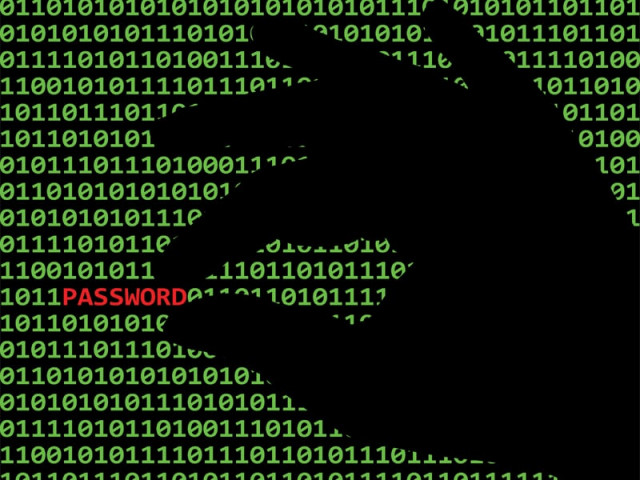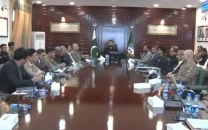Guarding new frontiers: Cyber defence body proposed
Aims to coordinate between LEAs to combat cyber crime.

Cyber space, ideology, culture and religion have been transformed into the new battle-fields, replacing the old physical ones, according to Senator Kamran. DESIGN: FILE
Like terrorism and military aggression, cyber security must be treated as a major threat to the country, the Senate’s panel on defence said on Saturday.
The panel proposed creating an Inter Services Cyber Command (ISCC) under the office of Chairman Joints Chief of Staff Committee (CJCSC) to pre-empt any cyber attack.
The command centre would coordinate between different law enforcement agencies on cyber security and cyber defence, recommended Senate Committee on Defence and Defence Production report released last week.
“Cyber warriors have replaced combat soldiers to a great extent, if not completely,” Senator Kamran told the committee meeting. “Cyber space, ideology, culture and religion have been transformed into the new battle-fields, replacing the old physical ones,” she added.
Quoting researches, the senator informed the committee that the US hegemony over communication has given them immense power to observe, breach and retrieve locked information from other smaller powers.
Kamran noted that the ‘unprecedented, non-conventional’ cyber security threat would have far reaching consequences on Pakistan’s sovereignty, security and privacy.
Since Pakistan is a nuclear state, it depends on computers and communications devices to control and command.
Expressing concerns the senator questioned “What would be the consequences if the US or any other country or group manages to breach the national nuclear command control and communication system?” She suggested that Pakistan needed to urgently improve its cyber crime, cyber surveillance and cyber espionage techniques.
The senator stated that law enforcement agencies were not trained to combat cybercrime with outdated operational and procedural tools. Pakistan, according to her, should particularly focus on cyber defence capability as well as the ability to retaliate and launch cyber attacks, if required, to deter and counter cyber aggression.
Senator Mushahid Hussain Syed, the chairman of the committee, recommended that the government should form a National Computer Emergency Response Team.
He recommended that a cyber security task force with affiliation of ministries of defence, information technology, interior and foreign affairs alongside professionals from the field should also be established. According to the chairman, this force would take steps to combat the new emerging threat and formulate a cyber security strategy.
Mushahid said his committee was working on a draft legislation aimed at providing necessary the legal framework for setting up cyber security and cyber defence authorities in the country.
Published in The Express Tribune, September 1st, 2013.



















COMMENTS
Comments are moderated and generally will be posted if they are on-topic and not abusive.
For more information, please see our Comments FAQ